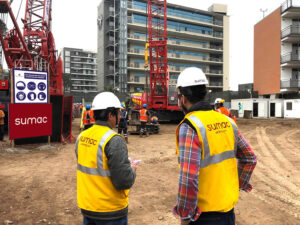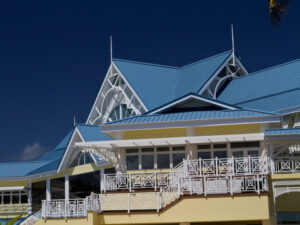In the ever-evolving landscape of the hospitality industry, hotels are constantly facing new challenges and opportunities. To stay competitive and thrive in this dynamic environment, it’s essential for hotels to foster a culture of continuous learning and adaptability. One powerful approach to achieve this is through growth mindset training. In this article, we will explore the concept of growth mindset, its relevance in the hotel industry, and the tangible benefits it can bring to business success.
Understanding Growth Mindset
At its core, a growth mindset is the belief that one’s abilities and intelligence can be developed through dedication, hard work, and learning. This concept, popularized by psychologist Carol Dweck, contrasts with a fixed mindset, where individuals believe their traits are innate and unchangeable. In the context of the hotel industry, adopting a growth mindset can transform the way hotel staff approach challenges, setbacks, and professional development.
The Relevance of Growth Mindset in the Hotel Industry
Adaptability to Industry Trends
The hospitality sector is highly influenced by ever-changing consumer preferences, technological advancements, and global trends. Hotels with a growth mindset are better equipped to adapt to these changes, viewing them as opportunities for improvement rather than obstacles. Whether it’s incorporating new technology for streamlined operations or adjusting services to meet evolving guest expectations, a growth mindset positions hotels to stay ahead of the curve.
Employee Engagement and Satisfaction
A growth mindset is contagious and can significantly impact the workplace culture. When employees believe that their efforts contribute to personal and professional development, job satisfaction increases. This positive mindset can result in improved employee retention, higher productivity, and a more collaborative work environment. Hotels can create targeted growth mindset training programs to empower their staff with the skills and mindset needed to navigate the challenges of the industry.
Innovation and Creative Problem-Solving
Hotels that encourage a growth mindset foster an environment conducive to innovation. Team members are more likely to think creatively and approach problem-solving with an open mind. This mindset shift encourages experimentation and the willingness to take calculated risks, leading to the development of unique services, experiences, and solutions that can set a hotel apart from competitors.
Benefits of Growth Mindset Training for Hotels
Improved Leadership Development
Leadership within the hotel industry plays a crucial role in shaping the organization’s culture and influencing its success. Growth mindset training for hotel leaders can enhance their ability to inspire and motivate their teams. Leaders with a growth mindset are more likely to provide constructive feedback, encourage continuous learning, and embrace challenges as opportunities for growth.
Enhanced Guest Experience
Hotels with a growth mindset are better positioned to adapt their services to meet the ever-changing expectations of guests. Whether it’s incorporating sustainable practices, leveraging technology for personalized experiences, or adapting to cultural shifts, a growth mindset enables hotels to proactively enhance the guest experience. Satisfied guests are more likely to become loyal patrons and advocates, contributing to the hotel’s long-term success.
Increased Operational Efficiency
Growth mindset training can extend beyond personal and professional development to impact operational efficiency. Staff members who approach their tasks with a growth mindset are more likely to identify and implement process improvements. This mindset shift can result in streamlined operations, reduced inefficiencies, and ultimately, cost savings for the hotel.
Conclusion
In a dynamic industry like hospitality, where change is constant and customer expectations are ever-evolving, adopting a growth mindset is not just beneficial—it’s imperative for sustained success. Hotels that invest in growth mindset training for business and for their teams are better positioned to navigate challenges, foster innovation, and create a workplace culture that attracts and retains top talent.
As hotels embrace the philosophy that intelligence and abilities can be developed over time, they pave the way for a resilient, adaptive, and forward-thinking organization. The benefits of growth mindset training extend beyond individual development to positively impact leadership, guest experience, and operational efficiency. In a world where adaptability is synonymous with success, growth mindset training emerges as a strategic tool for hotels to thrive in an ever-changing landscape.









